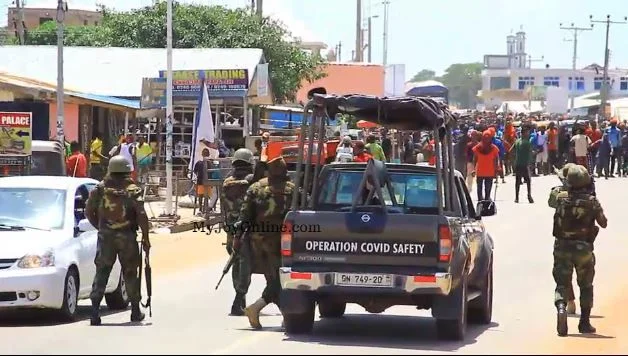On Friday, Nigerian police announced that they are still searching for those responsible for the kidnapping of the leader of the Methodist Church Nigeria, who was released after a ransom of 100 million naira (about $240,600) was paid.
Samuel Kanu Uche was freed on Monday, just a day after he was taken in Abia, a region in southeast Nigeria, according to the Christian Association of Nigeria.
Police spokesman Geoffrey Ogbonna stated that officers have been deployed to the area where the kidnapping took place and are actively seeking the suspects. He mentioned that Uche went to Lagos shortly after his release.
During a briefing in Lagos this week, Uche shared details about his abduction. He described how the kidnappers emerged from the bush in a coordinated attack.
“They split into three groups: some were behind us, others were in the middle, and another group was in front to prevent our escape. They shot at our vehicles and ultimately kidnapped three of us,” Uche explained.
He stated that the ransom was paid into a bank account provided by the kidnappers, although police have denied any involvement in the ransom transaction.
Uche criticized the government for failing to maintain security in the country, allowing kidnappers to thrive. “The main job of the government is to protect lives and property. Any government that cannot do this has failed badly,” he remarked after his release.
The issue of kidnapping for ransom has become a major problem in Nigeria, with over $18 million paid in ransoms between 2011 and 2020, according to a research firm called SBM Intelligence.
In response to the rising kidnappings, Nigerian federal authorities have been trying to combat the problem. Recently, the Senate proposed new laws to ban ransom payments, claiming it would improve the country’s security and economy.
Earlier this month, officials also blocked calls from over 70 million unregistered phone lines to make it harder for kidnappers to contact victims’ families. However, analysts say that kidnappers have found ways to bypass this restriction.
Uche’s kidnapping has raised further alarms about Nigeria’s deteriorating security situation, as the country deals with numerous kidnappings alongside a decade-long battle against extremist groups in the northeast and widespread banditry in the northwest.
The problem of kidnapping for ransom has become increasingly alarming in Nigeria, with many families living in fear of abduction.
Kidnappers often target individuals who they believe can pay large ransoms, including businesspeople, religious leaders, and even schoolchildren.
This trend has created a climate of fear, causing many people to alter their daily routines and limiting their freedom to move about.
As kidnappings become more common, the government has faced criticism for not doing enough to protect its citizens.
Many Nigerians are frustrated with the security forces, feeling that they are unable to effectively combat the growing threat of violence and crime.
Reports of people being taken from their homes or on the streets have left communities feeling unsafe and vulnerable.
The situation is particularly dire in regions like the northwest and northeast, where armed groups and extremist factions are active.
In the northeast, groups like Boko Haram have been responsible for countless deaths and displacement over the last decade.
Their violent actions have not only terrorized local communities but have also led to widespread humanitarian crises, with millions of people in need of assistance.
Local and international organizations have called for greater support for Nigeria to address these urgent security challenges.
The United Nations has emphasized the need for development and humanitarian aid to help those affected by violence and to stabilize the region. Without adequate resources and a strong commitment to security reforms, the cycle of violence may continue.
As the government seeks solutions, there are ongoing discussions about community involvement in improving safety.
Experts believe that building trust between local communities and security forces is crucial to effectively combatting crime. Initiatives aimed at fostering dialogue and cooperation may play a significant role in addressing the root causes of insecurity.
While many hope for improvements, the path forward remains complex. For now, the situation continues to be a pressing concern for Nigerians, who want to see meaningful action taken to ensure their safety and restore peace in their communities.























